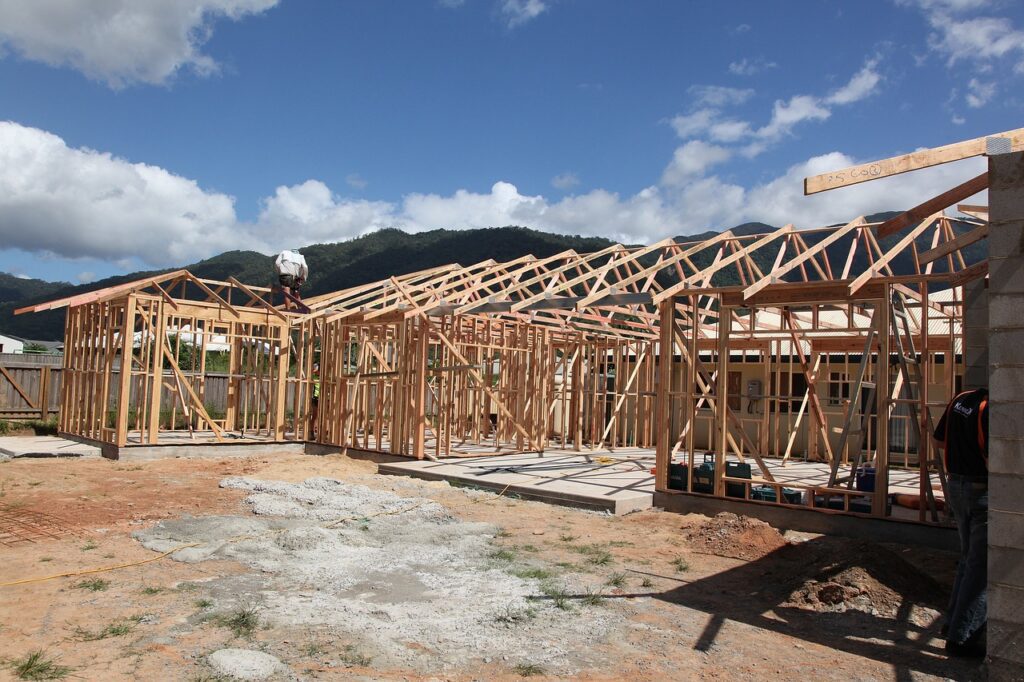Sustainable construction practices have gained significant momentum in recent years. This is as the world recognizes the urgent need to mitigate the environmental impact of the built environment. In British Columbia, Canada, the construction industry is embracing sustainability. Not only as a responsible choice, but also as a means to enhance the province’s environmental performance, social well-being, and economic growth. This article explores the numerous benefits of sustainable construction in British Columbia. We also highlight the positive impact it has on the environment, communities, and the construction industry itself.
Environmental Benefits

Sustainable construction practices in British Columbia have a profound impact on reducing environmental degradation and promoting long-term ecological balance. Key environmental benefits include:
a) Energy Efficiency: Sustainable buildings prioritize energy efficiency through the use of high-performance insulation, advanced HVAC systems, and energy-efficient lighting. This reduces energy consumption, lowers greenhouse gas emissions, and helps combat climate change.
b) Water Conservation: Sustainable construction promotes water conservation by incorporating a variety technologies. These include rainwater harvesting, low-flow plumbing fixtures, and greywater recycling systems. These measures help reduce water usage, protect local water sources, and minimize strain on municipal water supply systems.
c) Material Selection: Sustainable construction emphasizes the use of environmentally friendly materials. These include recycled or locally sourced materials, low-emission products, and sustainable timber. By reducing the reliance on resource-intensive materials and minimizing waste generation, sustainable construction contributes to the preservation of natural resources and reduces landfill waste.
Social Benefits
Sustainable construction in British Columbia also brings numerous social benefits that enhance the quality of life for residents and communities. Here are some ways.
a) Health and Well-being: Sustainable buildings prioritize indoor air quality by utilizing low-emission materials, proper ventilation systems, and abundant natural light. Improved indoor air quality contributes to healthier living environments. This works by reducing the risk of respiratory problems and allergies among occupants.
b) Enhanced Comfort: Sustainable construction integrates passive design strategies. These include natural ventilation, daylighting, and thermal insulation, to provide comfortable living and working spaces. This improves occupant comfort, productivity, and well-being.
c) Community Engagement: Sustainable construction projects often prioritize community engagement, involving stakeholders in the planning and design phases. This fosters a sense of ownership, promotes social cohesion, and creates inclusive spaces that cater to the diverse needs of the community.
Economic Benefits
Sustainable construction practices not only benefit the environment and society but also yield substantial economic advantages for British Columbia:
a) Energy Cost Savings: Energy-efficient buildings result in reduced operational costs through lower energy consumption. Over time, the energy savings accrued from sustainable construction can lead to significant financial benefits for building owners, businesses, and homeowners.
b) Job Creation: The adoption of sustainable construction practices creates new job opportunities in the green building sector. The demand for skilled professionals in areas such as renewable energy systems, green building design, and energy auditing contributes to the growth of a sustainable economy and a skilled workforce.
c) Market Competitiveness: Sustainable buildings command a premium in the real estate market due to their energy efficiency, lower operating costs, and positive environmental credentials. Developers and property owners who prioritize sustainable construction gain a competitive advantage by attracting environmentally conscious tenants, investors, and buyers.
Embracing sustainable construction practices in British Columbia, Canada, brings numerous benefits that extend beyond environmental considerations. From reduced energy consumption and water conservation to improved indoor air quality and community engagement, the advantages of sustainable construction positively impact the environment, social well-being, and the economy of the province. As British Columbia continues to prioritize sustainability, the construction industry plays a crucial role in shaping a greener future, demonstrating that sustainable practices and economic growth can go hand in hand.

Recent Comments